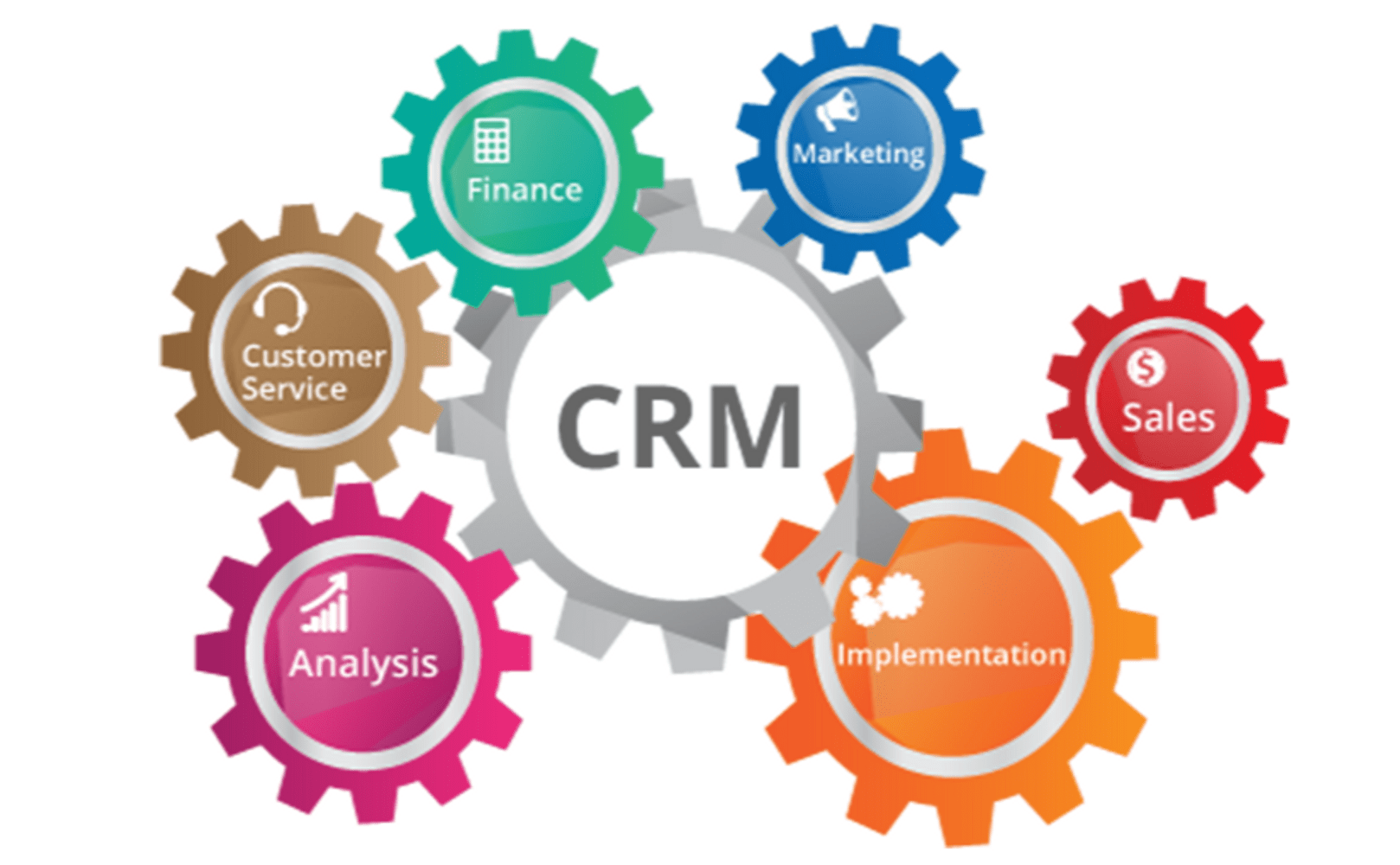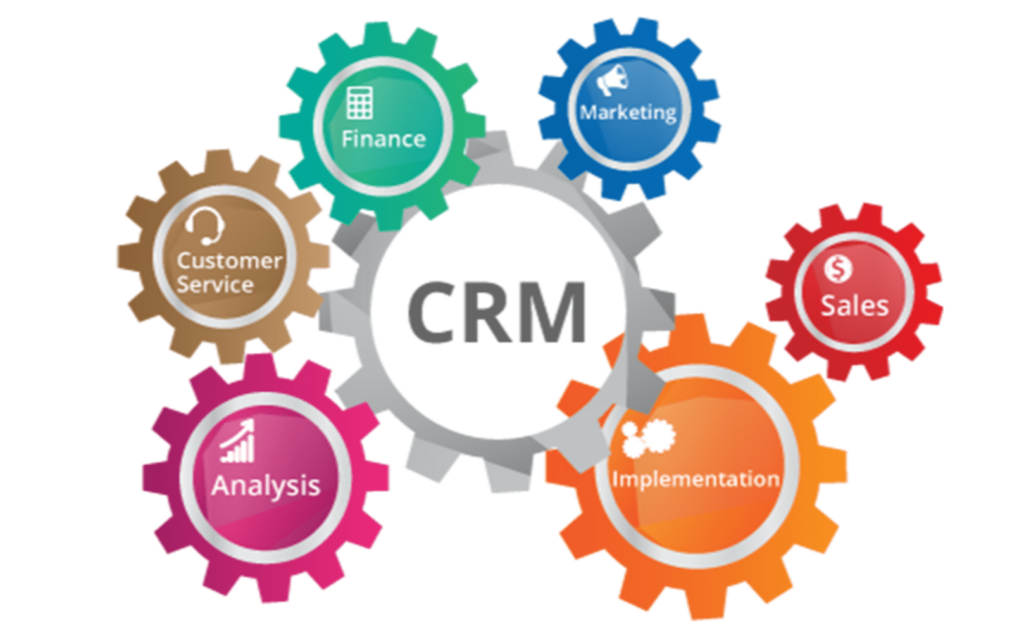

What is CRM Software Development?:-In today’s fast-paced business environment, maintaining strong relationships with customers is crucial for success. This is where Customer Relationship Management (CRM) software comes into play. CRM software development involves the creation of applications and platforms designed to help businesses manage and analyze customer interactions and data throughout the customer lifecycle.
Introduction to CRM Software Development
CRM software development is a specialized field within the broader realm of software engineering. It focuses on creating tailored solutions that meet the unique needs of businesses in managing their customer relationships effectively. These solutions encompass a wide range of functionalities, from storing customer information to facilitating communication and automating tasks.
Understanding CRM Software
Definition and Purpose
CRM software is designed to centralize and streamline the management of customer data, interactions, and processes. Its primary goal is to improve customer relationships, increase sales, and drive business growth by providing insights into customer behavior and preferences.
Importance in Business Operations
In today’s competitive landscape, businesses must prioritize customer satisfaction and loyalty. CRM software plays a vital role in achieving these goals by enabling organizations to better understand their customers, anticipate their needs, and deliver personalized experiences.
Evolution of CRM Software
CRM software has undergone significant evolution since its inception. Initially developed as simple contact management tools, modern CRM solutions now offer advanced features and capabilities to address the complex needs of businesses.
Early Development Stages
The origins of CRM can be traced back to the 1980s when businesses began using database marketing techniques to track customer information manually. These early systems lacked the sophistication of modern CRM software but laid the groundwork for future developments.
Technological Advancements
Advancements in technology, such as the internet and cloud computing, have revolutionized CRM software development. Today, businesses can leverage cloud-based CRM platforms that offer scalability, flexibility, and accessibility from anywhere with an internet connection.
Key Features of CRM Software
CRM software offers a wide range of features and functionalities designed to streamline customer relationship management processes. Some of the key features include:
Customer Data Management
CRM systems serve as centralized repositories for storing and managing customer information, including contact details, purchase history, preferences, and interactions.
Interaction Tracking
CRM software allows businesses to track customer interactions across various touchpoints, such as emails, phone calls, social media, and website visits. This enables organizations to gain insights into customer engagement and behavior.
Automation Tools
Many CRM solutions offer automation tools that help streamline repetitive tasks, such as sending follow-up emails, scheduling appointments, and updating customer records. This improves efficiency and productivity while reducing manual effort.
Reporting and Analytics
CRM software provides robust reporting and analytics capabilities that allow businesses to gain actionable insights from their customer data. By analyzing trends, patterns, and customer behavior, organizations can make informed decisions and optimize their marketing and sales strategies.
The Process of CRM Software Development
Developing CRM software involves several stages, each requiring careful planning and execution to ensure success.
Planning Phase
The planning phase involves defining the project scope, objectives, and requirements. This includes identifying key stakeholders, conducting market research, and outlining the desired features and functionalities of the CRM solution.
Design and Prototyping
Once the requirements are established, the design phase begins, where developers create wireframes and prototypes to visualize the user interface and user experience. This iterative process involves gathering feedback from stakeholders to refine the design before moving to the next stage.
Development and Testing
In the development phase, developers write code to build the CRM software according to the approved design specifications. Throughout this process, rigorous testing is conducted to identify and fix any bugs or issues before the software is deployed to production.
Deployment and Maintenance
Once the software is developed and tested, it is deployed to the production environment, where it becomes accessible to users. However, CRM software development is an ongoing process that requires regular updates, maintenance, and support to ensure optimal performance and functionality.
Choosing the Right CRM Software Development Approach
When embarking on CRM software development, businesses must choose the approach that best suits their needs and budget.
Custom Development vs. Off-the-Shelf Solutions
Businesses can opt for custom CRM development, where the software is built from scratch to meet specific requirements, or they can choose off-the-shelf solutions that offer pre-built features and functionalities.
Considerations for Small and Large Businesses
Small businesses may benefit from off-the-shelf CRM solutions that offer affordability and ease of implementation, while larger enterprises may require custom-built solutions tailored to their unique workflows and processes.
Benefits of CRM Software Development
Implementing CRM software offers numerous benefits for businesses of all sizes and industries.
Improved Customer Relationships
By centralizing customer data and interactions, CRM software enables businesses to provide personalized experiences and better serve their customers’ needs, leading to increased satisfaction and loyalty.
Enhanced Efficiency and Productivity
Automation tools and streamlined processes provided by CRM software help organizations eliminate manual tasks, reduce errors, and improve overall efficiency and productivity.
Data-Driven Decision Making
CRM software provides valuable insights into customer behavior and preferences, empowering businesses to make data-driven decisions and optimize their marketing and sales strategies for better results.
Challenges in CRM Software Development
Despite its many benefits, CRM software development also presents several challenges that organizations must address.
Integration with Existing Systems
Integrating CRM software with existing systems and databases can be complex and time-consuming, requiring careful planning and coordination to ensure compatibility and data integrity.
Data Security and Privacy Concerns
Storing sensitive customer data in CRM systems raises concerns about data security and privacy. Businesses must implement robust security measures and comply with regulations such as GDPR to protect customer information from unauthorized access and breaches.
User Adoption and Training
Ensuring user adoption and proficiency is essential for the success of CRM implementations. Businesses must invest in training and support programs to help users understand the software’s features and maximize its value.
Trends in CRM Software Development
The CRM landscape is constantly evolving, driven by technological advancements and changing customer expectations.
Artificial Intelligence and Machine Learning Integration
AI and machine learning
integration is revolutionizing CRM software development by enabling predictive analytics, sentiment analysis, and personalized recommendations. These capabilities empower businesses to anticipate customer needs, automate tasks, and deliver hyper-personalized experiences at scale.
Mobile CRM Solutions
With the increasing prevalence of mobile devices, mobile CRM solutions are gaining popularity among businesses. These applications allow users to access CRM data and functionality on the go, enabling sales teams to stay connected with customers and prospects from anywhere, anytime.
Cloud-Based CRM Platforms
Cloud-based CRM platforms offer scalability, flexibility, and cost-effectiveness compared to traditional on-premises solutions. By hosting CRM software in the cloud, businesses can eliminate the need for costly hardware infrastructure and enjoy seamless access to data from any device with an internet connection.
Future Outlook of CRM Software Development
The future of CRM software development is marked by innovation and continuous evolution to meet the evolving needs of businesses and consumers.
Personalization and Predictive Analytics
As AI and machine learning technologies mature, CRM software will become increasingly adept at analyzing customer data and predicting future behavior. This will enable businesses to deliver highly personalized experiences tailored to individual preferences and interests.
IoT Integration
The Internet of Things (IoT) is poised to revolutionize CRM by enabling the collection of real-time data from connected devices. By integrating IoT data with CRM systems, businesses can gain deeper insights into customer behavior and preferences, leading to more targeted marketing and sales efforts.
Enhanced User Experience
User experience will continue to be a focal point in CRM software development, with an emphasis on intuitive interfaces, seamless integration with other business tools, and personalized interactions. By prioritizing user experience, CRM vendors can drive higher adoption rates and ensure maximum value for their customers.
In conclusion, CRM software development plays a crucial role in helping businesses manage and optimize customer relationships effectively. From its humble beginnings as a simple contact management tool to the sophisticated platforms available today, CRM software has evolved to meet the complex needs of modern businesses. By leveraging advanced technologies such as AI, machine learning, and IoT, the future of CRM holds exciting possibilities for driving innovation, improving efficiency, and delivering exceptional customer experiences.
FAQs (Frequently Asked Questions)
1. What is CRM software development?
CRM software development involves the creation of applications and platforms designed to help businesses manage customer relationships effectively by centralizing and streamlining customer data, interactions, and processes.
2. What are the key features of CRM software?
Key features of CRM software include customer data management, interaction tracking, automation tools, and reporting and analytics capabilities.
3. What are the benefits of CRM software development?
CRM software development offers benefits such as improved customer relationships, enhanced efficiency and productivity, and data-driven decision-making.
4. What challenges are associated with CRM software development?
Challenges in CRM software development include integration with existing systems, data security and privacy concerns, and user adoption and training.
5. What are the future trends in CRM software development?
Future trends in CRM software development include AI and machine learning integration, mobile CRM solutions, and IoT integration to enhance personalization, predictive analytics, and user experience.
Also Read Our Article:- What Is Software Engineer In Test







